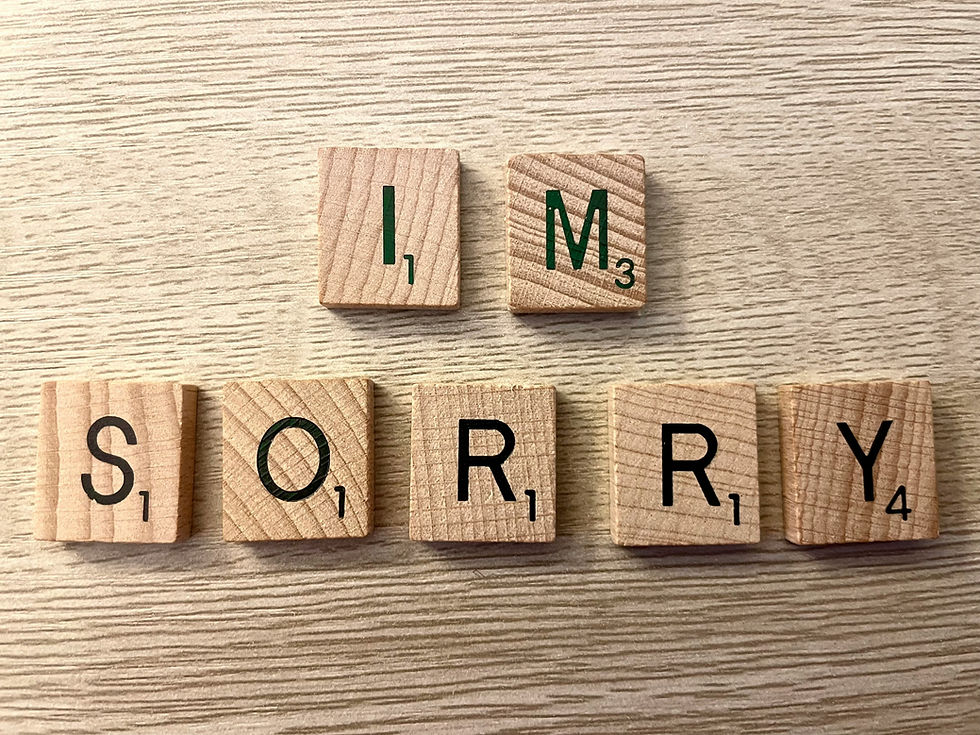How to Avoid Negative Escalation When We Fight?
- Elena Padurariu

- Feb 22, 2023
- 3 min read

Conflict is part of any couple. As Esther Perel said, couples go through a cycle of harmony, disharmony, and repair.
A good fight is one that ends with a resolution and repair.A bad fight is a negative escalation based on attacking, blaming, and offending the other.
While good fights lead to building a stronger foundation of a couple, a bad fight will weaken it to the point of breaking it up. Even a strong love cannot last in the face of criticism, blame, or contempt.
To help you fight better, I’ve collected a list of dos and don’ts, inspired by my experience with couples and by my research on the topic.
Here it is:
• Don’t:
Bring to the present conflict all conflicts from before. If an older conflict has not been resolved, take another time to discuss it. Bringing it all to the table will complicate the matter further.
• Instead:
Stay focused on the current situation and understand what is going on right now. Understanding must always precede resolution. Chances are that many things have already improved since you’ve had your first fight, but some problems might need more time to solve.
• Don’t:
Think that your view is the only one that is correct, and the other’s is wrong. Your partner might have a very valid view of the situation as well, so try to admit and respect that.
• Instead:
Understand that no one owns all the truth. Use defusing, by actively seeking at least a sliver of truth in what your partner is saying, regardless of how much you feel certain that your partner is incorrect or unfair. You might say something like: „You might have a point”, „Maybe I made a mistake here”, or „I can see how you could look at it this way”. Same time, admit to yourself the point you might exaggerate or see wrongly.
• Don’t:
Finger-point and blame, roll your eyes when the other person is talking, criticize, or use bad language. This will prompt your partner to defend or attack back to you and that will fuel a further escalation.
• Instead:
Talk about how you feel about the situation and what you expect to change. Use „I statements” such as: „I got angry when...” or „I feel not loved when...”
• Don’t
Raise your voice by thinking this way you can make yourself better understood. This will make the other get louder, withdraw in silence, or leave the room.
• Instead:
Slow down your talking, make silence breaks to cool off, or take time outs always giving the other a time estimate for when you’ll be back. While taking time out, think about something completely different to create some emotional space.
• Don’t:
Judge the intensity of your partner’s feelings by saying that he/she exaggerates. People’s emotional response was built over time, learned from caregivers, and repeated over and over.
• Instead:
Acknowledge and validate the other person's feelings, „bulletproof yourself” by not engaging in his/her emotions, and by staying cool.
• Don’t:
Lecture the other person about what he/she did wrong and don’t interrupt when their turn is to talk. That will lose the information that is needed to solve the problem.
• Instead:
Do your best to hear the person's point of view, and rephrase to make sure you understand what they meant.
• Don’t
End a conflict without any resolution and without repair in it. It will come back later, even stronger.
• Instead:
Even if you continue the discussion at a time later or on another day, agreeing to possible solutions and next steps, apologizing for what is needed, and assuming responsibility for implementing the next steps will make you feel much better about it.
The more you practice fighting smarter, the more you increase your chances of having a quality relationship, where each of you feels free to bring up uncomfortable topics and discuss them while feeling safe.
Please feel free to share my article



Comments